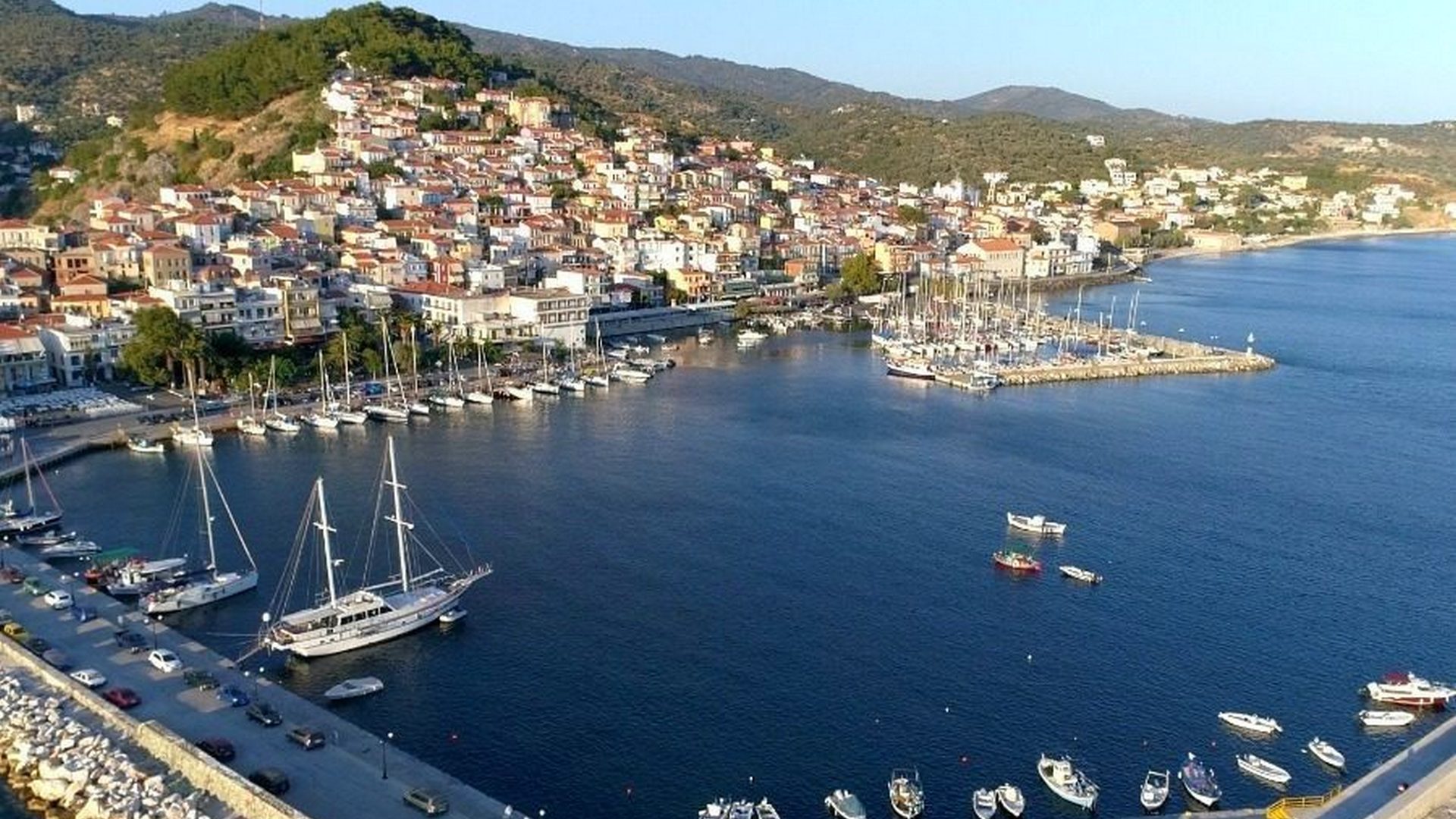Plomari has dry periods in May, June, July, August and September. The warmest month is July with an average maximum temperature of 32°C (89°F). The coldest month is February with an average maximum temperature of 13°C (55°F). December is the most wet month. August is the driest month.
At first, Megalochori, which is a village 15 km north of modern Plomari, 600 m. high in the mountains, was called Plomari and it can be considered the metropolis of Plomari.
Fear of the pirate invasions kept the residents of Plomari far from the sea for a lot of years. But when conditions of security were established and there was no fear of pirates, Plomarians came to live near the sea and started building their new town in the place where it is today.
With the help of experienced sailors, some of whom came from the South Aegean Sea, Plomarians built up a good navy.
Besides that, they were occupied with agriculture and with their hard work and patience they changed the mountains to endless olive tree fields by building low stone walls even on the steepest mountainous slopes to create the suitable territorial conditions for the growing of olive trees.
There are great beaches in Plomari as the seaside summer resort of Agios Isidoros and the western seaside neighborhood Ammoudeli are famous beyond locals and visitors. During the summer, you can enjoy a daily cruise with traditional wooden vessels while you can discover magnificent hidden beaches like ‘Panagia Krifti’. Accessed by sea, ‘Panagia Krifti’ is a protected landscape of a picturesque little church in a cave near a hot spring secluded in a dramatic scenery of ancient olive trees, tall sharp-edged rocks, and deep unexplored caverns.
Walking routes in Μountainous Plomari and in its villages well known as Plomaritoxoria are distinguished for their geomorphology and rich vegetation of the 2150.000 olive trees. One of the most beautiful trips in Plomari is in the gorge of Sedountas river which involves a great natural wealth and biodiversity, as well as cobbled paths, country churches, wooden bridges, watermills and old oil-presses. As a wealthy and cosmopolitan area, Plomari is famous for annual festivals like the ouzo festival.






